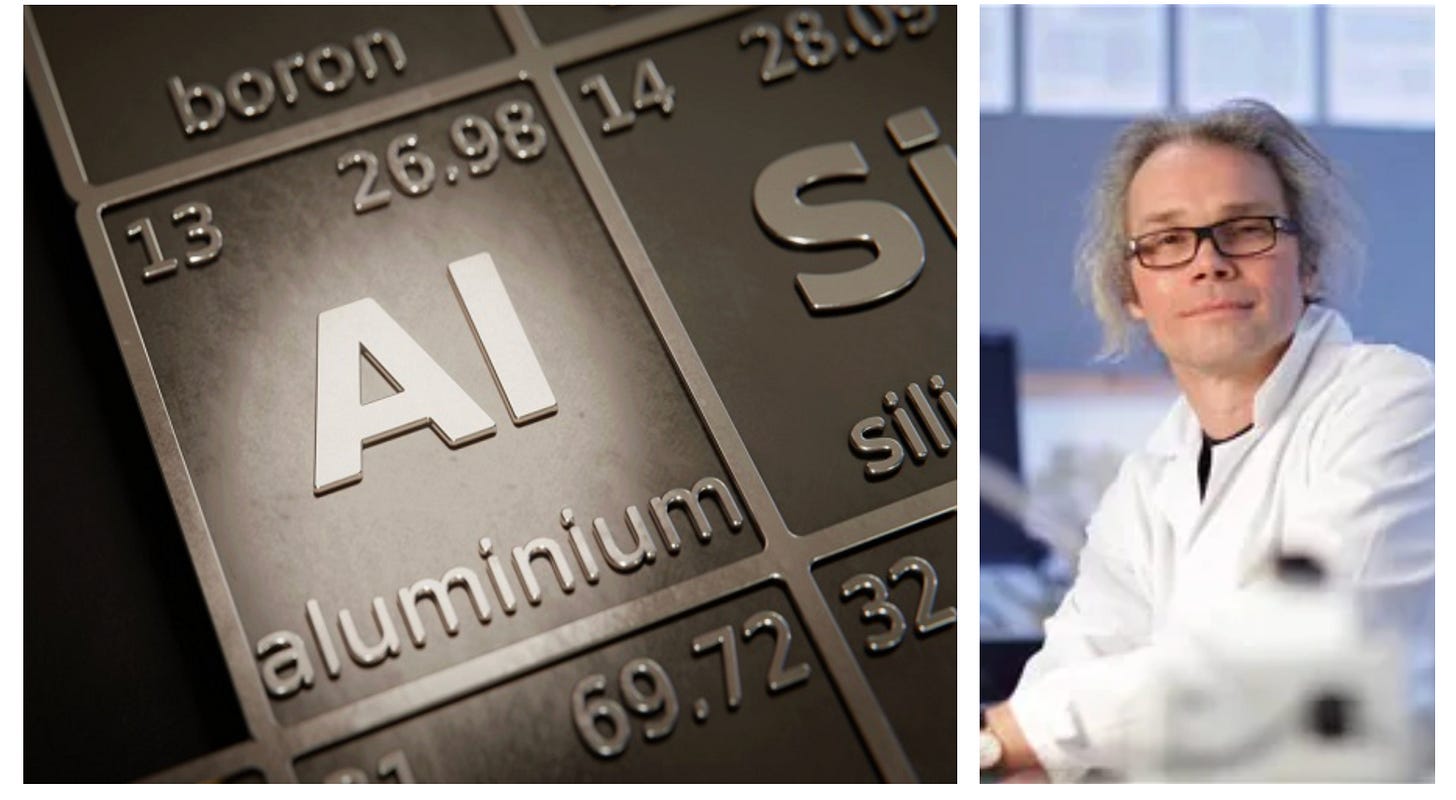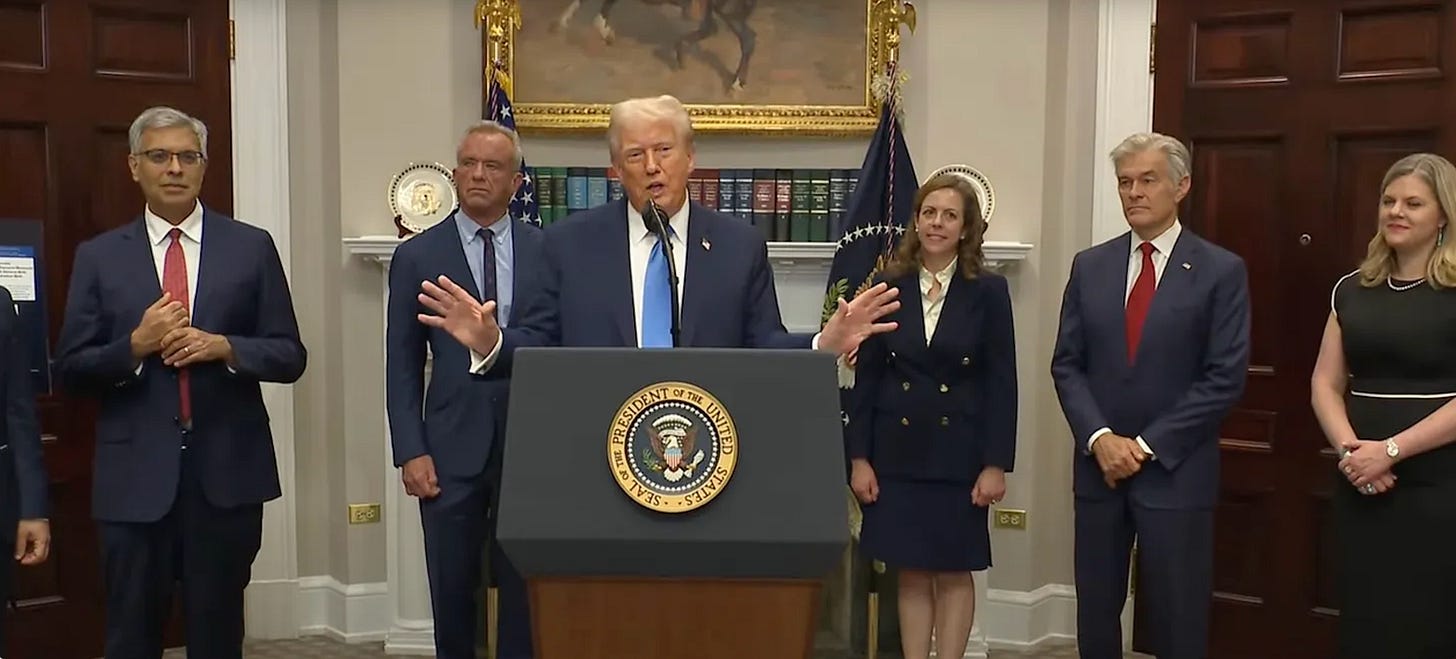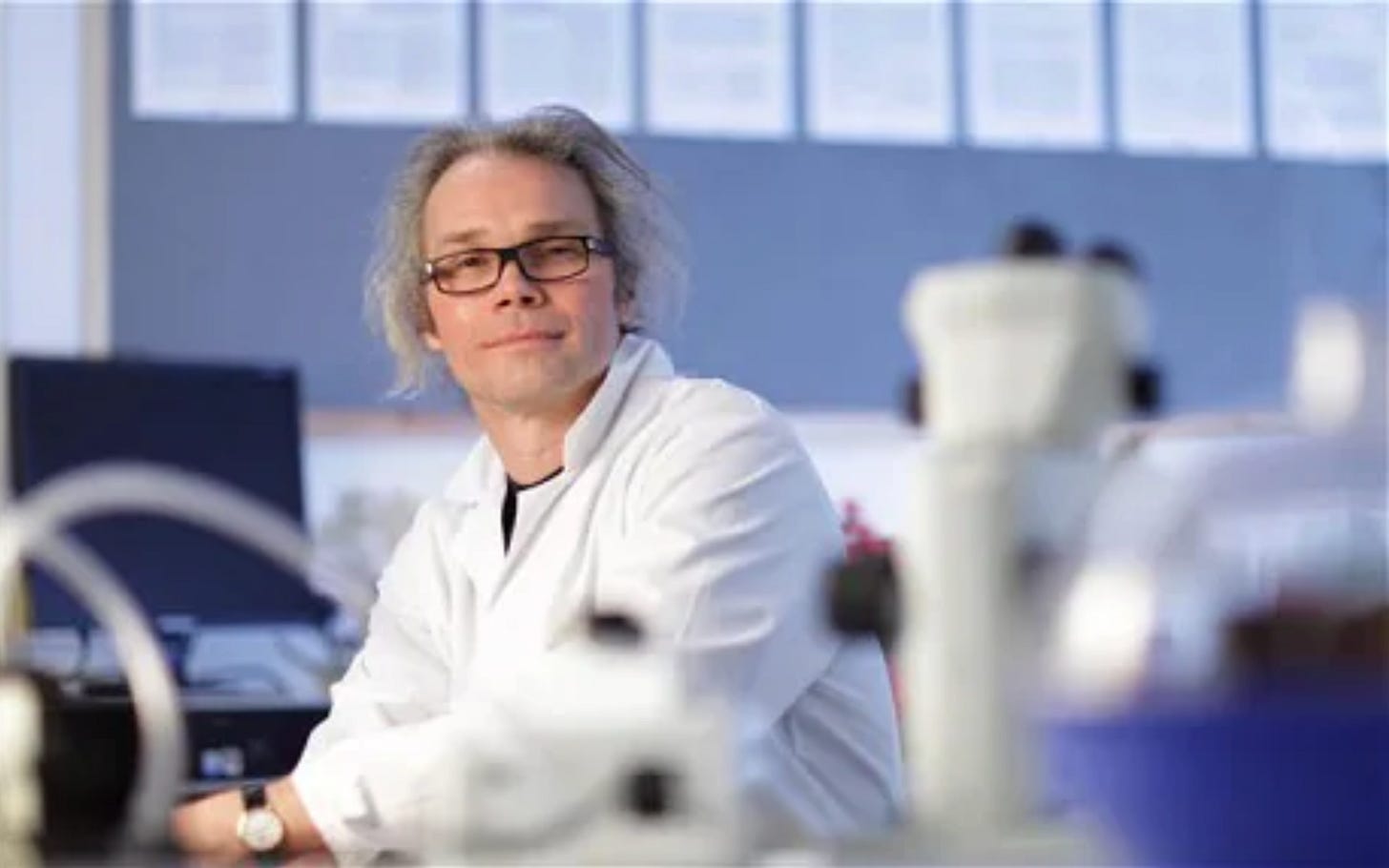A chat with 'Mr Aluminium'
Trump’s Tylenol warning stole the headlines, but his vow to strip aluminium from vaccines was the real shock. I asked Dr Chris Exley—Mr Aluminium himself—what it would mean for the vaccine industry.
At President Donald Trump’s press conference last week, the headlines focused on his warnings about Tylenol use in pregnancy. But buried in the spectacle was a far more explosive remark — one that almost nobody noticed.
Trump said he wanted to remove aluminium from vaccines. Gasp!
It was the most significant claim of the entire press conference, yet it passed virtually unnoticed, and no one in the press corps challenged it.
If carried through, this pledge would shake the foundations of modern vaccinology. Aluminium adjuvants have been the backbone of vaccines for nearly a century, used in billions of doses worldwide.
Stripping them out would not only disrupt a multi-billion-dollar industry but force a fundamental re-examination of how vaccines are made and tested.
The resistance would be fierce.
To understand the implications, I turned to the scientist who has spent nearly forty years warning about the dangers of aluminium in human health: Dr Chris Exley
Known as “Mr Aluminium,” Exley has published over 200 peer-reviewed papers on the subject, showing how aluminium accumulates in the brain, how it is trafficked by immune cells, and how it may be implicated in conditions from Alzheimer’s disease to autism.
His 2018 paper revealed some of the highest levels of aluminium ever recorded in human brain tissue, including in children diagnosed with autism.
In the wake of Trump’s press conference, Exley argued that Tylenol exposure in pregnancy alone cannot explain severe, debilitating autism — and that this kind of brain damage is far more likely linked to infant exposure to aluminium in vaccines.
Exley has also been one of the most outspoken critics of the HPV vaccine Gardasil, warning that Merck’s novel aluminium adjuvant, amorphous aluminium hydroxyphosphate sulfate (AAHS), is unusually potent, biologically reactive and unsafe.
His stance has made him a target, costing him funding and institutional support, but his voice remains central to any honest debate about aluminium and vaccines.
With Trump’s words still reverberating, I asked Dr Exley for his reaction — and took the opportunity to dive deeper into the science, the politics, and the personal cost of speaking out about aluminium.
NB: this interview has been edited for brevity




